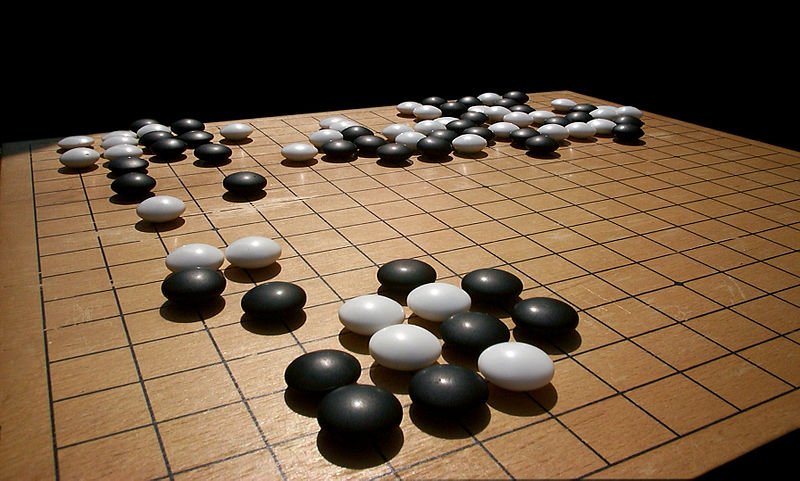Everything about how we structure and manage our organizations is rooted in one objective: to achieve increasing levels of productivity.
- Create more at less cost with an increasing level of quality.
- Target more precisely and engage efficiently.
- Sell more with less investment faster than competitors.
- Employ capital at a lower cost and drive increasing returns.
- Innovate faster than competitors. (This one has proved elusive and unresponsive to simple replication.)
It worked well economically for long enough. It’s just not enough anymore.
Productivity is still important, but productivity alone is a potential black hole for human energy and capital. It’s tesuji—skilled but commonplace, in a world looking for myoshu—extraordinary and unexpected.
The Machine Becomes the Teacher:
In the fabulous and thought-provoking read, Whiplash by Joi Ito, Director of MIT’s Media Lab and Jeff Howe, they describe the moment when the computer, AlphaGo made a move so profound in the game of Go (more potential moves than atoms in the universe) that the greatest living human player, “Lee Sedol, paled, excused himself, and then left the room… .”
One of the commentators responded after a long, awkward silence: “I’ve never seen a human play this move.” Later, a commentator noted: “Nothing in the 2,500 years of collected Go knowledge and understanding prepared anyone for (this) move.”
Pure myoshu. As described, “a work of aesthetic as well as strategic brilliance.”
Pursuing Myoshu:
We still manage for productivity when we should be leading for insight.
Relying on productivity alone will help you go out of business efficiently.
You need to find a way to punctuate equilibrium.
For that, you need the ability to both play the game of your business efficiently as well as to capture and act on insights in remarkably unique, counter-intuitive ways in real time.
“I’ve never seen a human play this move.”
You won’t see nor seize those insights managing solely for productivity.
Nor can you command innovation to occur much like you would a quality program.
The formula is simple. Myoshu is hard.
- Create cognitively diverse teams.
- Ask questions that stimulate extreme critical thinking.
- “Why will autonomous automobiles lead to remarkable demand for artificial hearts?”
- “What trigger events will change everything?”
- “What should we do about it?”
- Experiment wildly. (The antithesis of productivity.)
- Cut the ties to your past. Regularly.
- Use the productivity machine to turn insights into actions.
The Bottom-Line for Now:
It’s time to rethink the purpose of your organization. Not the mission—the purpose. Blow it up and rebuild it around ideas and productivity. Just pursuing productivity is a surefire way to efficiently build a high-quality path to obscurity.
What can you do that will have competitors turn pale and walk away from the game?
—


